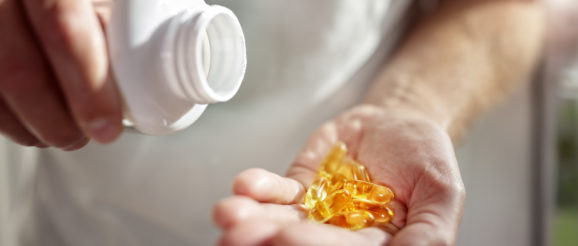Helping end users understand delivery system innovation key facet of its effectiveness

Marc Brush, former editor of Nutrition Business Journal and principal in the consultancy Bend LLC said big winners in delivery system innovation are few and far between. Capsules and tablets have dominated supplement industry delivery modes for decades for good reason. They’re robust, proven, cheap and easy for consumers to understand, even if they aren’t very sexy and are actively disliked by a small subset of end users.
Effervescents, gummies stand out
“There has typically not been a ton of this kind of innovation,” Brush said. “Emergen-C, with its effervescent tablet, that was a big hit. That stuck out.”
“And gummies. Those have been a hit. But that’s about it for home runs,” he said.
One early innovation that has been hailed by longtime industry observer Loren Israelsen, president of the United Natural Products Alliance, was the clear gelatin capsule for use with powdered or granulated botanicals. The consumers could see what they were getting, Israelsen said, and it proved to be a game changer back in the day. It helped drive the early growth of companies like Nature’s Sunshine.
Brush said that interest in botanicals seems to have been rekindled in the younger generation, who are increasingly turning their attention to legacy liquid forms of these ingredients. But here a new delivery mode is coming to the fore which someday soon could aspire to home run status, Brush said.
“I’m seeing more and more pump tops,” Brush said. “It’s easier for consumers than having to mess with a dropper. There are a lot of interest in botanicals among this group for some condition specific purposes, like for relieving stress.”
“There are some great nervines in bottles that are using ingredients of interest like adaptogens. It’s a lot easier to just take a couple of pumps when you’re stressed,” he said.
Pumps hold promise
Brush said another development in the market that might be included in this mode of innovation is looking at how products are processed and under what guises they’re sold.
“There is now this movement toward ‘dusts’ and ‘elixirs,’ ” he said. “The word ‘elixir’ has something ancient and mysterious about it. It implies something about ancient wisdom, and that links up well with the use of adaptogenic ingredients,” he said.
“I would argue that redefining certain formats in a more relevant, more consumer friendly way is its own form of delivery system innovation and is having a positive effect in the market. If your goal as a manufacturer is to spread more health and wellness, then relating better to the time you are living in and connecting better with your consumers is all to the good. So who’s to fault a brand from reorienting a functional beverage and starting to call it an ‘elixir?’ ” Brush said.
Data has to underlie claims
Consultant Blake Ebersole, principal in the firm NaturPro Scientific, said for the more complicated delivery systems innovations, the ones that get at how ingredients are made as opposed to how they’re packaged, having the data to back up claims is key.
“There is a lot of talk about bioavailability right now,” he said. “I do think the average consumer can understand that you don’t much benefit from something if you don’t absorb it well. There are a lot of companies out there trying to increase the absorption and bioavailability, but the ones that era doing it right are the ones that have actually invested in the science, such as doing pharmacokinetic studies.”
CBD companies often overpromise and underdeliver
Ebersole said one burgeoning area where he sees this concept being abused at the moment is in the CBD realm.
“You’ve got all of these CBD companies out there making all of these claims. There are some out there in the hemp and CBD world who seem to believe that if you can just get this stuff to mix in water, that automatically makes it more bioavailable,” he said.
Ebersole said a bioavailability enhancement done right can pay for itself times over by creating a lifetime customer. Products that work win allegiance; those that don’t are one-and-dones.
But he cautioned product developers to remember that the marketplace is also not always rational.
“At the low end you’ve got all these tubs of powders. These are the lowest of low tech and these things are flying off the shelves,” he said.
